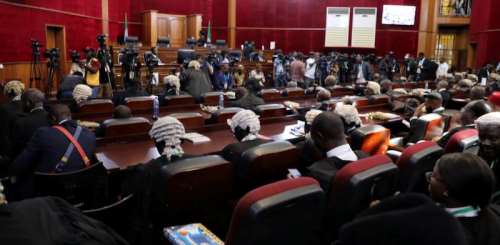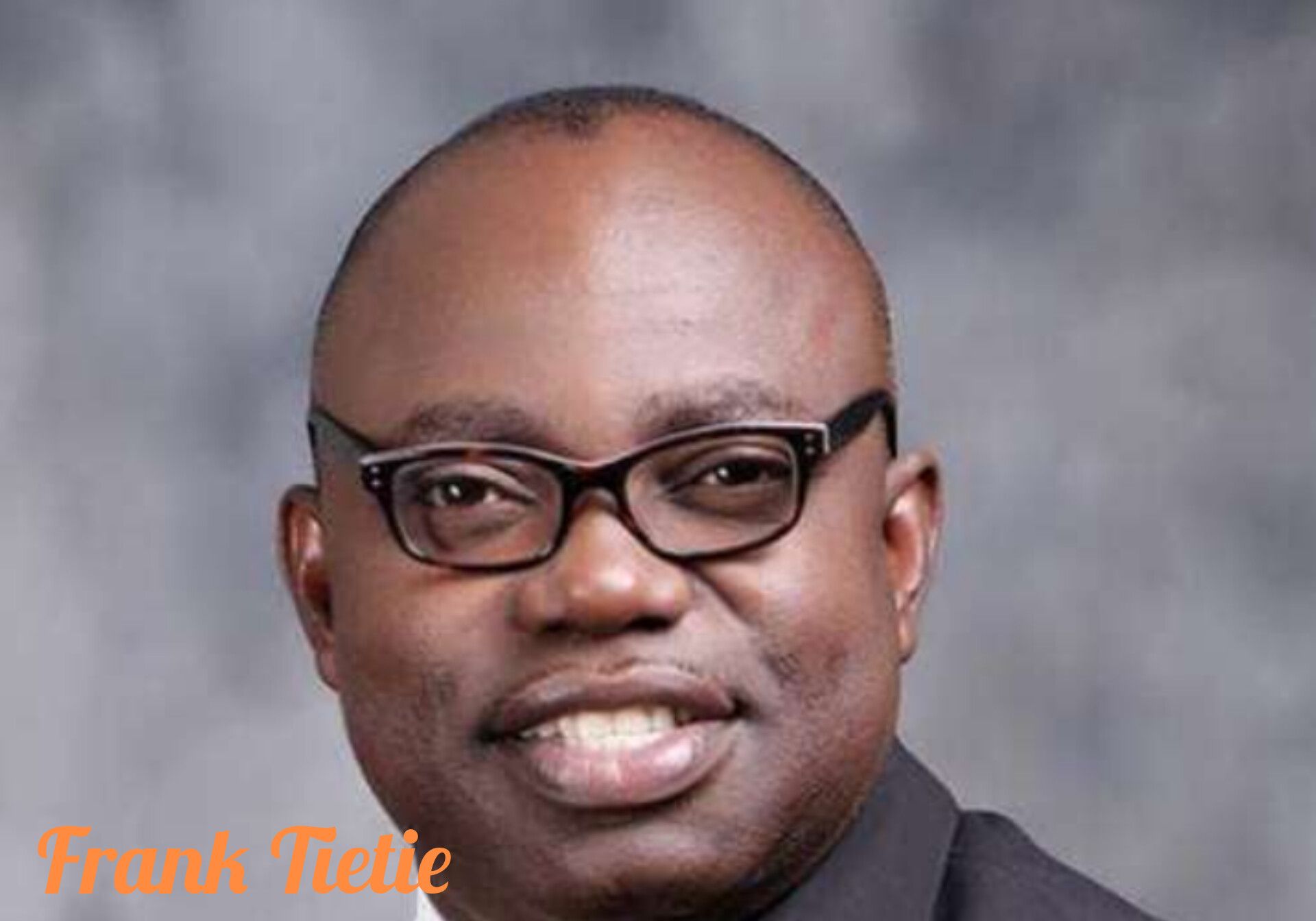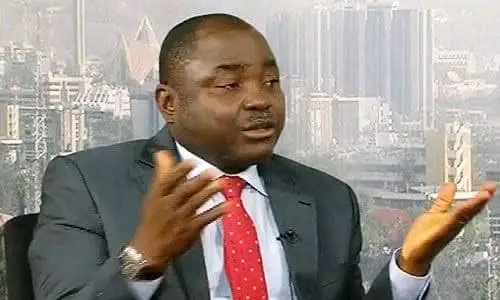By Ehichioya Ezomon
Today, Monday, February 10, 2025, is first D-Day for Governor Monday Okpehbolo at the Election Petitions Tribunal (EPT) sitting in Abuja, the Federal Capital Territory (FCT) of Nigeria. The ex-Senator (APC, Edo Central) is expected to begin defence of his declaration by the Independent National Electoral Commission (INEC) as the winner of the September 21, 2024, governorship election in Edo State.
Members of the public, especially the people of Edo State, are watching and waiting with bated breath, to see whether Okpebholo will toe the INEC line and close his defence without calling any witnesses to testify for him.
The INEC – which declared Okpebholo of the All Progressives Congress (APC) as the poll winner, having scored 291,667 votes (about 51.1%) – failed to call any of the five witnesses it slated to testify, despite persuading the three-man tribunal on January 5 to adjourn the case to January 6, as “the witnesses would come to Abuja from Benin,” Edo State capital city.
At the resumed proceeding on January 6, INEC’s lead counsel, Kanu Agabi (SAN), said his team had shelved the idea of bringing witnesses after it reviewed the case, adding, “My Lords, after we left you yesterday (Wednesday), we gave more thought to the matter and came to the conclusion that the sensible thing to do is to close the case of the 1st Respondent, which we hereby do,” Agabi told the tribunal.
Counsel for the Peoples Democratic Party (PDP) and its candidate, Dr Asue Ighodalo, didn’t express surprise by the turn of events, with Adetunji Oyeyipo (SAN) saying, matter-of-factly, that, “Frankly speaking, we are not surprised and it is well within the right of the 1st Respondent (INEC) to show such good discretion. We are not objecting.”
But in an undisguised elation, the PDP unsolicitedly offered expert’s opinion, pointing to the risk INEC’s failure to call witnesses poses for the Respondents. “This abrupt end to INEC’s defence leaves the electoral body relying solely on cross-examinations and arguments from APC and Okpebholo’s lawyers,” the party said.
The PDP, however, noted its pathway to claiming its “stolen mandate,” explaining that, “The tribunal has already admitted critical BVAS machines into evidence, devices that will expose over-voting and discrepancies in the declared results.”
The party added: “Testimonies from PDP witnesses, including local government agents and an expert witness (PW12), detailed systemic manipulation during result collation. Independent monitors, such as Athena Centre and TAP Initiative, have corroborated these claims, further denting INEC’s credibility.
“By opting not to call witnesses, INEC appears to be taking a gamble, leaving its defence in the hands of APC and Governor Okpebholo’s legal teams. Analysts suggest this approach could backfire, as INEC must now contend with its own certified records and the BVAS data, which clearly contradict the declared results,” the party added.
Yet, PDP/Ighodalo had similarly suddenly closed their case on Monday, February 3, after calling 19 witnesses to testify to their claim of winning the governorship poll, though Ighodalo, going by INEC’s declaration, scored 247,274 votes (about 43.3%) to place second to Okpebholo.
It’s uncertain how many of the 290 witnesses – earmarked to testify for the eight political parties appearing before the tribunal – belonged to PDP/Ighodalo. But as the main challengers of the poll, surely, hundreds were primed to testify for them!
Recall that the tribunal had adjourned in Benin City on Friday, January 24, after taking the testimonies of PW11 and PW12, and relocated sitting to Abuja on Tuesday, January 28, with the Plaintiffs expected to call more witnesses, some of who refused to show up to testify the previous week.
But alas on Monday, January 3, a counsel for the Plaintiffs, Robert Emukpoeruo (SAN), offering no rationale, told the tribunal that his clients had concluded their case (in just 10 days), having called 19 witnesses, thus dampening the proceedings that’d captured public attention since the hearing proper began on January 21.
Left to guess the ‘whys’ and ‘hows’ of the Plaintiffs’ action, several questions then arose: If PDP/Ighodalo called only 19 witnesses, did they cover the 765 of the 4,519 polling units, whose votes they query in their petition? Did the 19 witnesses supply and adduce enough evidence that rendered calling more witnesses unnecessary?
We’re reminded, though, as per Muhammad JSC, in Olonade v Sowemimo (2014) LPELR-22914(SC), 27 – in explaining the meaning of the standard of proof in civil cases, (and) the balance of probabilities – that:
“The court decides which side’s evidence is heavier, not by the number of witnesses called by either party or on the basis of the one being oral and the other being documentary, but by the quality or probative value of the evidence be it oral and/or documentary.”
So, in deciding to close their case after calling 19 witnesses, did PDP/Ighodalo think they’d met the legal threshold set out above, to prove their allegations of manipulation of the election?
“No, they didn’t,” declared the Acting Chairman of the Edo chapter of the APC, Emperor Jarrett Tenebe, whose voice was muffled when PDP/Ighodalo held the tribunal spellbound with evidential claims of electoral heist by the INEC, APC and Police, telling the News Agency of Nigeria (NAN) on January 3 that PDP/Ighodalo “abandoned their case abruptly because they have no case ab initio.”
Boasting that “the whole country and the people of Edo in particular would know that the APC won the election” when the Respondents open their case, Tenebe said: “They (PDP/Ighodalo) were called to testify but couldn’t produce more witnesses, so closing their case at this point amounts to abandonment of the case.
“If you are challenging about seven hundred and something polling units and you call only 19 witnesses, does that not amount to abandonment? I think they do not have a case, that is why they hurriedly closed their case today (January 3), which is a good thing for the APC.”
But it appears that Tenebe (like the PDP) was too early to guess the outcome of the petition, as the INEC on January 6 closed its defence without calling any witness, leaving the tribunal chairman, Justice Wilfred Kpochi, to rule that: “The request (by INEC) is granted and the first Respondent’s case is hereby closed,” and adjourned the matter to today, Monday, January 10, for Okpebholo to open his defence.
The three-man panel of Justices Wilfred Kpochi (Chairman), A.B. Yusuf and A.A. Adewole considers mainly alleged irregularities in the total number of votes cast in many polling units, which reportedly exceeded accredited voter-count recorded by the Bimodal Voter Accreditation System (BVAS) that the INEC deployed for the ballot.
While six parties question the credibility of the election in which INEC returned Okpebholo as the winner; the focus is on Ighodalo, who came second with 247,274 votes (about 43.3%) at the poll, with the PDP claiming those figures were manipulated to disfavour Ighodalo.
As hearing commenced in Benin City, the tribunal’s proceedings had witnessed the expected legal fireworks, with PDP/Ighodalo striving to unmask alleged massive rigging of the process that threw up Okpebholo as Governor, who’s sworn-in on November 12, 2024.
The party avers that – but for disfranchisement of voters; suppression of votes; over-voting; vote-buying; and connivance of the APC, INEC and Police to “gift” victory to Okpebholo – Ighodalo won the election, and should be declared as Governor of Edo State.
Going by testimonies of the Plaintiffs’ witnesses, PDP/Ighodalo seemed to hold their ground: That they won the election and INEC should’ve so returned. The witnesses tried to demonstrate alleged suppression, inflation and alteration of votes by the APC, INEC and Police, to the detriment of Ighodalo, a Lagos-based Lawyer and business tycoon.
Exuding confidence – and taking a page from PDP/Ighodalo’s sweeping allegations against APC/Okpebholo – the witnesses were even judgmental, pointing out votes that should’ve been counted or cancelled, and claiming that INEC’s reported rigging of the process amounts to a brazen breach of the Electoral Act 2022 (as amended).
Thus, if election petitions – and elections – are won on social media, PDP/Ighodalo would’ve breasted the tape before they closed their petition marked: EPT/ED/GOV/02/2024, as reports on the proceedings were salaciously-headlined, portraying PDP/Ighodalo to’ve rubbished and made mincemeat of INEC’s declaration of Okpebholo as the poll winner.
Hence, there’s fear and anxiety that Okpebholo may also fail to call witnesses, and rely on the alibi that PDP/Ighodalo’s documentary evidence, and oral testimonies by the witnesses didn’t prove the Plaintiffs’ case “beyond reasonable doubts,” and “in substantial compliance with the electoral laws.”
Prior to the start of hearing on January 21, the Respondents, via Ferdinand Orbih (SAN), had asked the tribunal to dismiss the Plaintiffs’ petition on grounds of “incompetence” and “not filed in accordance with the extant law,” and to hands-off the petition for “lack of jurisdiction?”
An inkling to such a possibility was the prayer by Okpebholo’s counsel, Onyechi Ikpeazu (SAN), on Thursday, January 6, for the tribunal to grant him a date next week (this week), to enable him open defence, saying, “I never envisaged the first Respondent (INEC) would close its case today.”
“I have not arranged for witnesses to be moved from Benin. A date next week would be okay,” Ikpeazu said, even as he promised “not to use the entire 10 or five days” allotted to the second Respondent (Okpebholo) for his defence.
Reacting, Plaintiffs’ counsel argued that adjourning till Monday (today) would be too long, and urged the matter be adjourned to Saturday (January 8) for Okpebholo to open his defence. But the tribunal rejected the plea, and subsequently fixed February 10 for Okpebholo to open his defence.
So, will Okpebholo advance his defence today by limiting the number of witnesses to be called, and reducing the alloted number of days thereoff; relitigate the pre-hearing call for the tribunal to dismiss the Plaintiffs’ petition; or align with INEC’s counsel, Agabi’s claim, and aver that his (Okpebholo’s counsel, Ikpeazu) “did justice to the case during the cross-examination of the petitioners’ witnesses?”
Members of the public are anxiously waiting for Okpebholo’s moves on his first D-Day at the tribunal, which may be a harbinger of what to expect on his second D-Day during the tribunal’s judgment to close out the 180 days (six months) allotted by law to consider and decide the petitions!
Mr Ezomon, Journalist and Media Consultant, writes from Lagos, Nigeria. Can be reached on X, Threads, Facebook, Instagram and WhatsApp @EhichioyaEzomon. Tel: 08033078357





